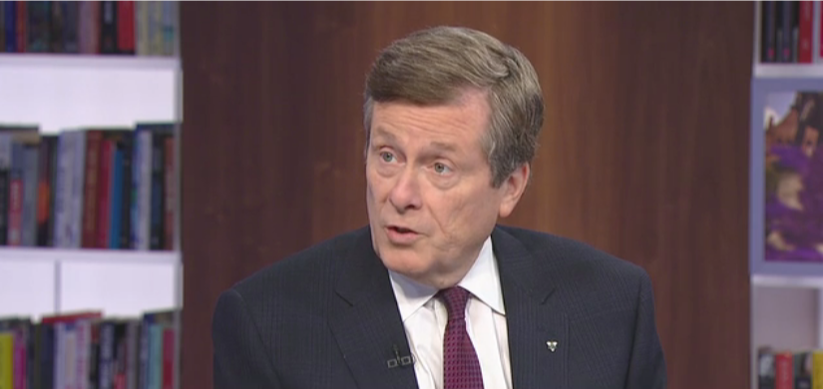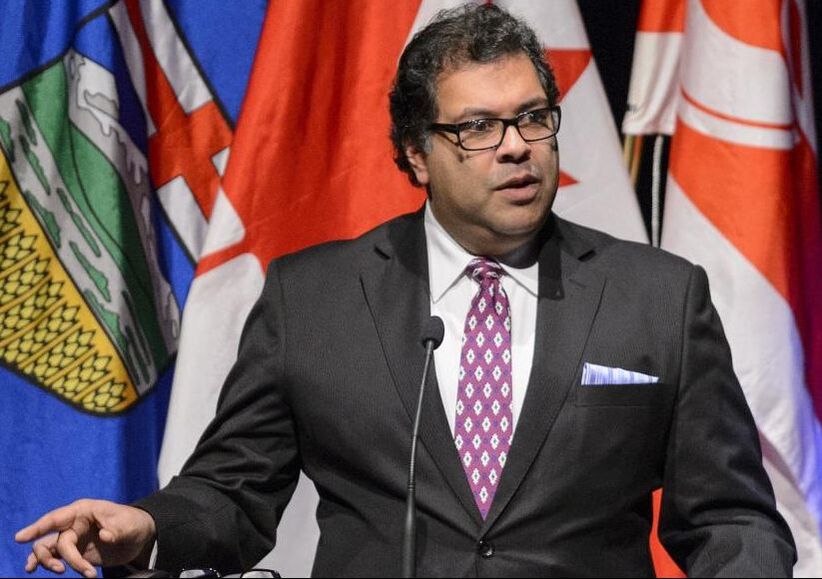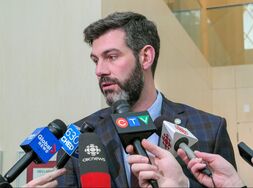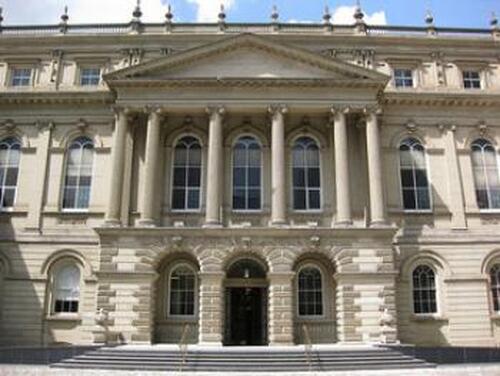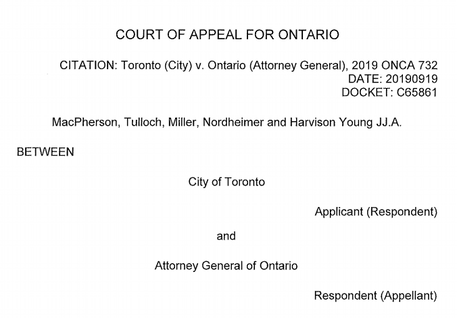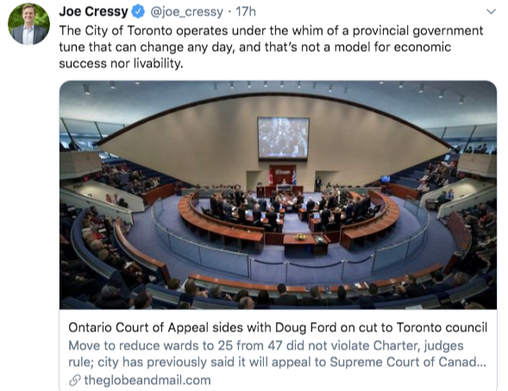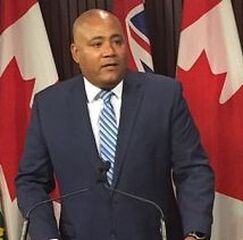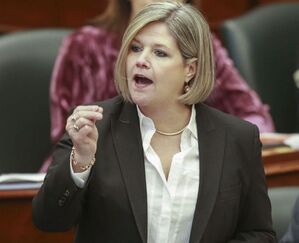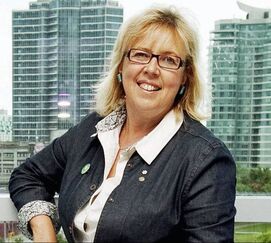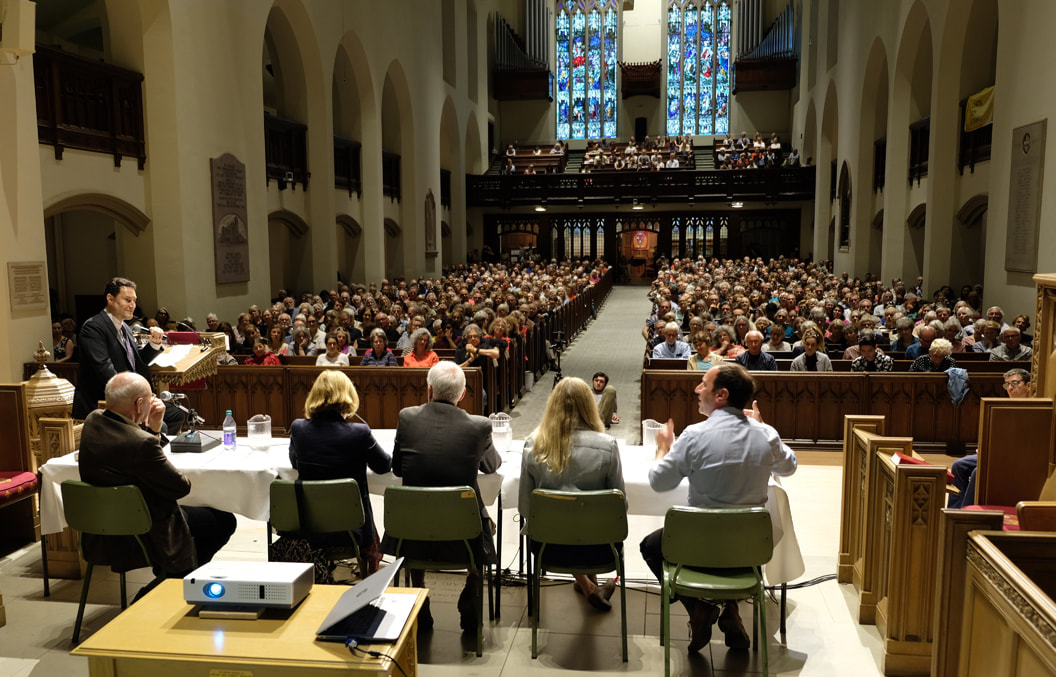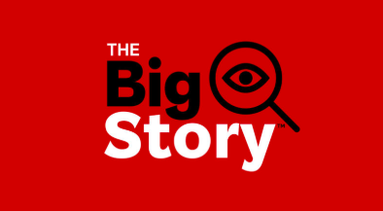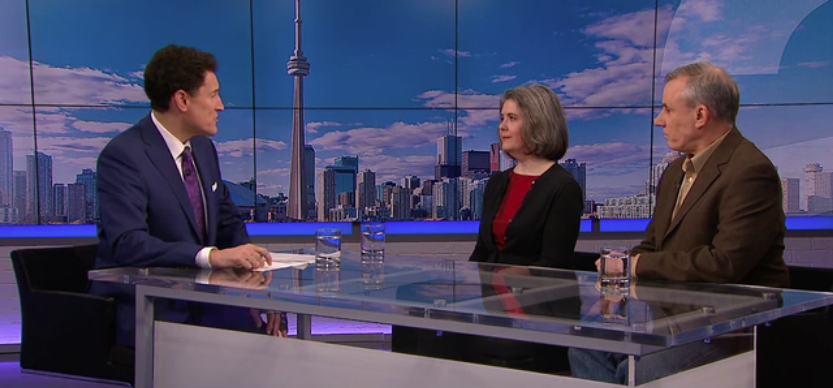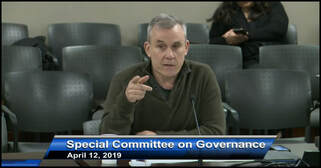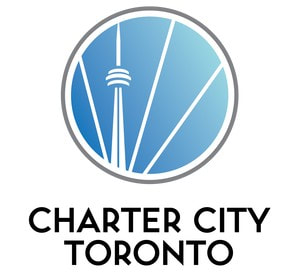Skeptical about Constitutional Protection
Is Mayor Tory halfway there on a City Charter for Toronto?
|
Toronto Mayor John Tory spoke in favour of a City Charter for Toronto in an interview on TVO's The Agenda with Steve Paikin which aired on October 24. Paikin asked Tory what he thought of the idea, and Tory replied that he was amenable to a Charter--of sorts. "If you said to me, take the City of Toronto Act and further refine it to give the city of Toronto more latitude within its own legislation and its own government to do things, I would say the answer is yes," Tory said. But contrary to the position taken by Charter City Toronto, Tory appeared to both approve and reject the idea of constitutional protection for a City Charter. Speaking about the Ford government's slashing of City Council in half during last year's city election, Tory said constitutional protection would be good, but impossible to achieve. "It shouldn't be this way", he said. "All these years later, we should have had a modernized constitution, but we all know the realities of trying to change it. And nobody's got an appetite for that." Tory was likely referring to the general amending formula for the Canadian constitution, which requires 7 provinces to make a change. But he appeared not to be aware that a single-province amendment to empower Toronto with a City Charter would require only the approval of Queen's Park and the federal parliament. Charter City Toronto (CCTO) wrote to Mayor Tory today urging him to get up to speed on the topic, and is urging its members to do the same. CCTO advocates the adoption of a strong City Charter for Toronto that would give it greater authority to act on its own without provincial approval or interference. But such a Charter without constitutional protection merely gives the city 'a new seat at the kiddies' table', said Doug Earl, a member of CCTO's steering committee. Cities need constitutional status to escape their role as powerless "creatures of the province". |
Tory's answer on a City Charter starts at -11.49. His answer on constitutional protection for cities starts at -16.31.
CITY CHARTER NEWS FROM ALBERTACalgary, Edmonton reel as Alberta cuts millions
|
If your agree with our goals and approach, please consider a small donation to help defray the cost of running this website, public outreach, meeting venues, printing and promotional materials. Thank you!
CCTO: 'Bill 5 ruling shows need to adopt a City Charter'
COURT OF APPEAL APPROVES PROVINCE'S
CUTS TO TORONTO CITY COUNCIL
• 3-2 Decision
|
The Ontario Court of Appeal, in a 3-2 split decision, has backed the province's 2018 reduction of Toronto City Council from 47 to 25 members.
It also approved the province's move to strip the city of the ability to determine the form and structure of its own governance--a right held by every other Ontario municipality.
The decision brings the number of judges who have backed the province's controversial move to three, the same number that have ruled in favour of the city. (Mr. Justice Belobaba of the Superior Court struck down the cuts last year, but the Court of Appeal stayed his ruling pending a final decision by the Appeal Court.)
It also approved the province's move to strip the city of the ability to determine the form and structure of its own governance--a right held by every other Ontario municipality.
The decision brings the number of judges who have backed the province's controversial move to three, the same number that have ruled in favour of the city. (Mr. Justice Belobaba of the Superior Court struck down the cuts last year, but the Court of Appeal stayed his ruling pending a final decision by the Appeal Court.)
|
The decision reinforces the current situation in Canada in which cities have no defence against unilateral provincial interference, even if it goes specifically against the will of city council. City Council voted in 2018 to increase the number of councillors to 47 from 44 and later to oppose the Ford government's decision to slash the council in half.
The case is likely headed to the Supreme Court of Canada, as city council has told its solicitors to do everything necessary to reverse the damaging cuts to city council. "Nothing could show more clearly the need to adopt a city charter for Toronto than a court judgement which reaffirms that a city of 3 million people is subject to absolute provincial rule without the authority to |
govern their own affairs," said Doug Earl, a member of the Steering Committee of Charter City Toronto. "It's unacceptable in this day and age that the governments closest to the people have no protected legal status. People who are concerned about preserving local decision-making and who think a city the size of Toronto needs greater powers should join us to get a city charter in place."
Charter City Toronto advocates for a constitutionally-protected city charter that would give Toronto (and other cities who want it) a higher degree of autonomy from the province, a better financial deal, exclusive jurisdiction over purely municipal matters and protection from provincial interference.
Charter City Toronto advocates for a constitutionally-protected city charter that would give Toronto (and other cities who want it) a higher degree of autonomy from the province, a better financial deal, exclusive jurisdiction over purely municipal matters and protection from provincial interference.
The ruling confirms the status of Toronto and other Ontario cities, as powerless "creatures of the province", fully subservient and vulnerable to anything Queen's Park wishes to do to them.
The comments of the dissenting judges paint a different picture. They refer to the province's decision to cut city council in the middle of an election campaign as an "infringement" of the Charter rights of candidates in the election that is "extensive, profound and seemingly without precedent in Canadian history".
"The actions taken by Ontario left a trail of devastation of basic democratic principles in its wake," said the dissent written by Justice J. C. MacPherson.
The comments of the dissenting judges paint a different picture. They refer to the province's decision to cut city council in the middle of an election campaign as an "infringement" of the Charter rights of candidates in the election that is "extensive, profound and seemingly without precedent in Canadian history".
"The actions taken by Ontario left a trail of devastation of basic democratic principles in its wake," said the dissent written by Justice J. C. MacPherson.
21st Century Status for a 21st Century City
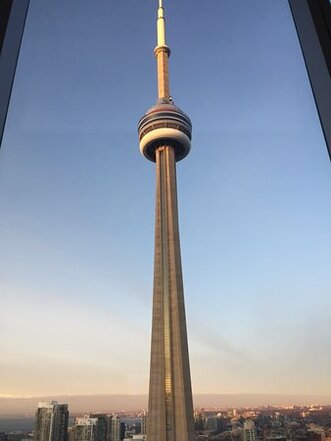
The Toronto region is home to nearly half of the people in the province. One in five Canadians. More people than all but two Canadian provinces. In fact, Toronto’s Community Housing Corporation houses more tenants than Prince Edward Island has people, yet our smallest province has vastly more power and authority over its affairs and its finances than we do, at nearly twenty times the size. The Toronto region is Ontario’s economic engine. In 2013, it contributed $330 billion to the country's GDP--an economy larger than the six smallest provinces of Canada combined. The city of Toronto proper generated $157 billion of that: 10% of Canada's GDP. Yet only a fraction of the taxes generated by that wealth comes back to Toronto in government services and investment. In 2005, Toronto gave Ontario and Canada $11 billion more in taxes than it got back in programs, services and funding. And the city has had to beg for every penny. On any given day, Toronto manages complex realities that most other Ontario cities don’t even have to imagine. We are the primary magnet for immigration in Canada, welcoming and settling a staggering array of people from every country and culture on the planet. We run a transit system that carries 1.7 million people a day. We spend more than a billion dollars a year on police, fire, emergency and health services to protect millions of citizens in challenging, densely urban circumstances. Our city councillors mediate more development proposals in a year than most Canadian cities see in a lifetime, while still finding time to help local residents calm traffic on their neighbourhood streets and field complaints about garbage pickup. We provide public housing, health and welfare services for a large population of the marginal and homeless residents of Toronto, many of whom migrate to the city from the rest of the province and beyond. These are just some of the activities and challenges and facts that set Toronto apart from the province in which it lies. We take pride in them all. Yet all of these things are under constant threat by a chronic shortfall in the resources needed to guarantee their continued success. Toronto generates great wealth, but never seems to possess the wherewithal necessary to properly look after its own needs or meet its own objectives. Why is such a rich city so eternally poor? Toronto can't meet its own objectives because it is forever commanded to instead meet the objectives of the province, or the federal government, or whoever is "paying" the bill--with Toronto's money. The city lacks the power, status and resources to carry out its responsibilities. It exists as an infantalized "creature of the province", without autonomy, without access to revenue sources that would nourish the city's ability to function, without the power to make adult decisions. Forced to seek permission from 'senior' politicians for even the most mundane of city tasks -- setting speed limits on neighbourhood streets, designing our own governing structures, collecting the taxes we need to pay for the services we are required to provide. And now. Toronto must on a daily basis endure insults and hostility from the provincial government, whose job it is to ensure Toronto thrives. • The unilateral slashing of Toronto City Council, which gives Torontonians less representation at a higher price and leaves us as the only city in the province without the power to determine how it will govern itself. • The fire sale of iconic city assets like the Hearn Generating Station to political insiders. • The theft of the city's subway system. • The announcement of a new transit plan for the city that was imposed without even informing our mayor in advance. Strike that: REFUSING to inform our mayor in advance. • The revocation of $1.1 billion in promised gas tax revenues for transit maintenance, again without consultation, notice or regret. • Cuts to vital services that protect our children and our most vulnerable, such as closing safe injection sites in the midst of an opioid epidemic that kills 250 residents of Toronto a year. Toronto is home to some of the foremost urban thinkers in the western world, but who runs our affairs? Politicians from the hinterland who breeze into town to "fix Toronto's problems". Instead, they amalgamate and slash us into political instability. They demand cities fulfill ever-increasing responsibilities with less money. And without the power of the purse, because even when the city has in the past decided to raise new revenues, the province has stepped in and said no. Then they lecture us on how we aren't competent to manage our own affairs. There’s no reason for the city to be governed by people who live and get elected in other parts of Ontario. Why do we let Smallville run Metropolis? Toronto needs a new relationship with the provincial government, founded on mutual respect and co-operation. But trust is no longer enough; we need constitutionally-protected guarantees of Toronto's autonomy and governance of its own affairs. Charter City Toronto proposes a different future. One in which the city of Toronto is accorded the respect, the resources and the authority to be the city it can be. One in which the city throws off the shackles of arbitrary and small-minded provincial control and asserts itself as the confident, competent city of the future its citizens already know it to be. Watch this space in the coming weeks as we unfold game-changing proposals to transform the future of the city. |
CHARTER CITY TORONTO NEWS
CAPACITY CROWD FOR CHARTER CITIES
1,40O pack a church on St Clair Ave to hear about a City Charter for Toronto CCTO AT CITY COUNCIL
City Charter could help get Toronto's governance back, CCTO's Doug Earl tells city committee. CHARTER CITY ROUND TABLE
On March 25, we asked 50 citizens what they think about a City Charter for Toronto. Here's what they told us. CCTO ON SPACING RADIO
Former Mayor John Sewell and CCTO's Doug Earl talk about Charter Cities on spacing radio. (STARTS AT 16 MINUTES IN) |


